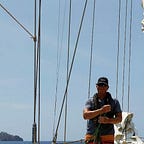Botswana, home to the International Law Enforcement Academy
Training African police personnel to enhance democracy and the rule of law is the mission of the International Law Enforcement Academy in Botswana. The International Law Enforcement Association also promotes international collaboration in the fight against transnational organized crime.
The US Embassy in the host nation works with a Joint Oversight Committee of representatives from both countries to ensure that bilateral agreements carry out ILEA activities. The committee meets twice a year to discuss the ILEA’s policies and activities.
Training African law enforcement professionals to encourage international cooperation and policy coordination against transnational organized crime is the primary mission of ILEA-South, which was founded to fulfill this need. It is managed by a managing director who is supported financially by the government of Botswana.
The Law Enforcement Management Development Program (LEMDP) is a course students may take at the academy. It is broken up into sections and taught by people who are very knowledgeable in the subject topic.
This executive course will teach participants the skills necessary to lead change effectively, as well as policy and critical thinking abilities that are essential for those who aspire to leadership positions. The course material includes a wide range of subjects, including criminal justice, investigations, and the prosecution of wildlife offenders.
Many opponents are concerned that human rights violators would be taught at the academy, similar to how this occurred at the School of the Americas. However, proponents of the school believe it helps boost the efficiency of police units and prevents corruption. This may be particularly relevant when considering the anti-drug policies of the United States, which have a long history of contributing to the militarization of law enforcement and the use of abusive tactics in Latin American countries.
The International Law Enforcement Academy in Gaborone provides training to law enforcement officials from African countries to improve those nations’ respective criminal justice systems. It highly emphasizes democratic leadership, policing reform, and collaboration between regional agencies.
The school was established in 2000 by Botswana to enhance international law enforcement and combat transnational organized crime. The Botswana government provides funding while a managing director is in charge of the organization’s day-to-day operations.
Courses in forensics, primary case management, counterterrorism, supervisory police training, drug identification and evidence processing, customs interdiction, document fraud, illegal immigration, and public corruption are all available to students at the ILEA Gaborone. In addition to that, it offers practical instruction to law enforcement personnel.
Since 2002, the Fish and Wildlife Service, often known as the Service, has collaborated with the ILEA Gaborone to provide annual training for conservation law enforcement employees. The training includes strategies for surveillance, collecting and preserving evidence, recognizing signs of smuggling, and interviewing procedures.
In addition, a group of Service investigators with specialized knowledge conducts many online training modules on wildlife trafficking investigations. These training programs are adapted to meet the requirements of a variety of professions, such as those held by rangers, police, inspectors, and detectives who are involved in the battle against wildlife trafficking.
The International Law Enforcement Academy Budapest (ILEA-Budapest) is an institution that is dedicated to providing police administrators from Central and Eastern Europe with instruction in management and investigative strategies. The ILEA Budapest provides an introductory course that lasts for six weeks, as well as specialized training courses and regional seminars that include themes such as counterterrorism, financial crimes, and international crime.
More than 24,000 professionals throughout Central and Eastern Europe, Central Asia, and North Africa have received training due to ILEA Budapest’s activities since the organization’s founding in 1995. It helps the embassy fulfill its mission to foster global relationships between US law enforcement officials and their counterparts worldwide; advance US interests in the fight against terrorism and international drug trafficking; and strengthen social, political, and economic stability.
An American serves as the director of ILEA Budapest and is assisted in his duties by a Hungarian administrator. The United States and Hungary came to an arrangement that allows the ILEA to function, and this agreement is bilateral. The Hungarian Director maintains constant communication with the Academy, and it is his responsibility to ensure that all of the requirements outlined in the Bilateral Agreement are met.
The International Law Enforcement Institution in New Mexico (ILEA-NM) is the advanced training academy for international law enforcement officers run by the United States Department of State. It offers academic teaching at a senior level on the most recent tactics in law enforcement and criminal justice, providing foreign law enforcement professionals with the skills and information they need to investigate and battle crime in their nations.
In addition, ILEA-New Mexico provides participants in its training programs with opportunities to participate in various one-of-a-kind activities and cultural outings. These outings may include excursions to nearby neighborhoods, museums, or historical locations.
The Academy also provides training in various other areas, such as international crime and the illegal wildlife trade. Gladys Koti, a native of Uganda with many credentials for training in animal legislation and trafficking concerns, teaches one of the wildlife investigative courses at the Academy, for instance. Koti is responsible for instructing the course.
A Professional Community (PC) was established by the Bureau of International Narcotics and Law Enforcement Affairs (INL) to guarantee that Academy graduates had access to the resources and continuous assistance they needed to exploit their newly acquired expertise effectively. As a part of their in-person course, forums, and workshops, participants could contact foreign experts, partner organizations, and other stakeholders via this online portal and converse with them.
